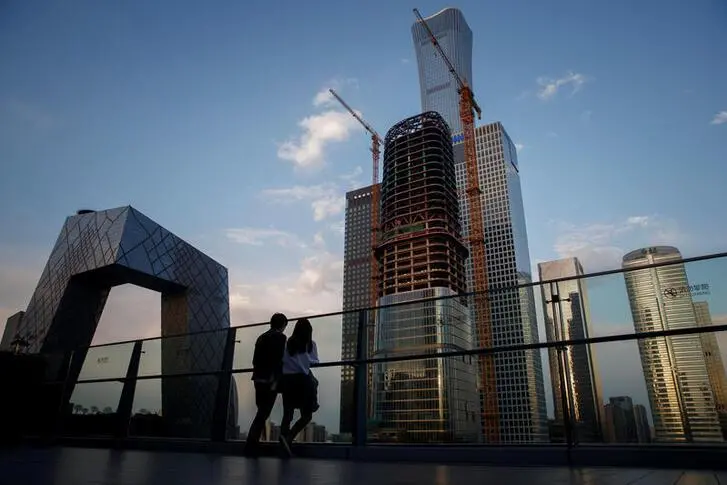PHOTO
(The author is a Reuters Breakingviews columnist. The opinions expressed are his own.)
LONDON - “Beware of excessive economic gloom” was the title of a column I wrote on April 8, as Covid-19 deaths surged across much of the developed world. At the time, even cautious hope seemed bold. Now the opposite warning is more apt. It’s time to beware of easy optimism.
Don’t get the wrong idea. Deep economic pessimism is still uncalled for. For one thing, the medical news has moved from terrifying to cautiously encouraging. Covid-19 has killed relatively few people in Asia. The virus has caused proportionately more deaths in Europe, but the daily toll is now minimal in most of the region. And while it is still on the rise in many U.S. states, America’s weekly average death rate remains 77% below its peak.
Nor is it necessary to worry about the underlying state of economies as they emerge from their cryogenic suspension. There is some lasting damage, especially for airlines and other travel-related industries. However, almost all other sectors are returning towards pre-coronavirus normalcy – though at different paces. German retail sales in June were 4% higher than in February, before the pandemic struck, but orders for the country’s capital goods orders are 31% lower.
The best news may be monetary. Back in April, it was reasonable to fret that governments and the financial sector would struggle to provide enough money and credit to keep consumption up and companies ticking over while revenue disappeared. The concern has proved unfounded.
Fiscal deficits are gigantic and central banks are firmly committed to whatever-it-takes monetary policy. As a result, consumer cash flows are strong, and credit is cheap and plentiful.
With all this fairly good news, why worry more now There are four concerns.
First, the monetary support that sustains the economy has pushed the financial world into even weirder territory than after the 2008 credit crunch. The U.S. Federal Reserve’s policy interest rate is the highest of all the major central banks, yet remains pathetically low at 0.25%, with little chance of rising soon. Yields on 10-year Italian government bonds are the highest in the developed world at a paltry 1.3%. Stock market investors seem to be worry-free. The U.S. S&P 500 index is only 6% below its pre-pandemic peak in February.
The financial exuberance is worrying. If consumers start drawing down their unusually bloated savings accounts, they could start an inflationary tide. On the corporate side, many companies and sectors would benefit from tougher financial discipline than is likely to be available for many years. And investors desperate for higher yields are tempted to take on the sort of risks that can easily go badly wrong.
Second, the American labour market, which is still crucial for the global economy, is in bad shape. The unemployment rate jumped from 3.5% in February to 14.7% in April and was still a very elevated 11.1% in June. That was not necessary. In the European Union, extensive government subsidies to employers have led to a minimal increase in the unemployment rate, from 6.4% to 6.7% during the lockdown months.
Most currently unemployed Americans will eventually find jobs, probably with their old employers. Still, the time away is likely to leave scars, especially among poorly paid workers. This could do lasting economic harm and aggravate the country’s already severe social tensions.
Third, viral fear and political bitterness have both been rising in some countries, especially the United States. Both increases are a little surprising. The medical trends are now quite positive and government spending has been generous. Besides, national crises typically inspire more unity than division, even after government moves that proved unwise.
The virus is hardly the only source of American worry and discontent, but it makes a bad situation worse. For example, viral-related fears probably explain much of the American reluctance to follow European countries in reopening primary and secondary schools. If schools mostly stay closed, the social and psychological losses will stretch well past the education sector, which accounts for about 5% of gross domestic product.
Finally, the coronavirus economy has substantially increased the economic role of governments. The authorities are deciding what industries to subsidise, designing schemes for handouts, and setting more rules for when and how businesses can operate. It will be hard for politicians to give up these enhanced powers.
Governments may use their new-found authority to help the economy. Few people would object to a big German or American investment programme in infrastructure, for example. However, the leaders of most developed economies have neither clear agendas nor strong popular support. With those handicaps, what should be an opportunity for wise spending or regulation is all too likely to turn into a vote-seeking economic drag.
All in all, the coronavirus economy has been fairly well managed, assuming that public health considerations justified a sudden economic stop. The willingness of governments to spend amply and quickly could not prevent a recession, but it has left the world well primed for recovery. Now comes the hard part.
(The author is a Reuters Breakingviews columnist. The opinions expressed are his own.)
(Editing by Peter Thal Larsen and Oliver Taslic) ((edward.hadas@thomsonreuters.com; Reuters Messaging: edward.hadas.thomsonreuters.com@reuters.net))




















